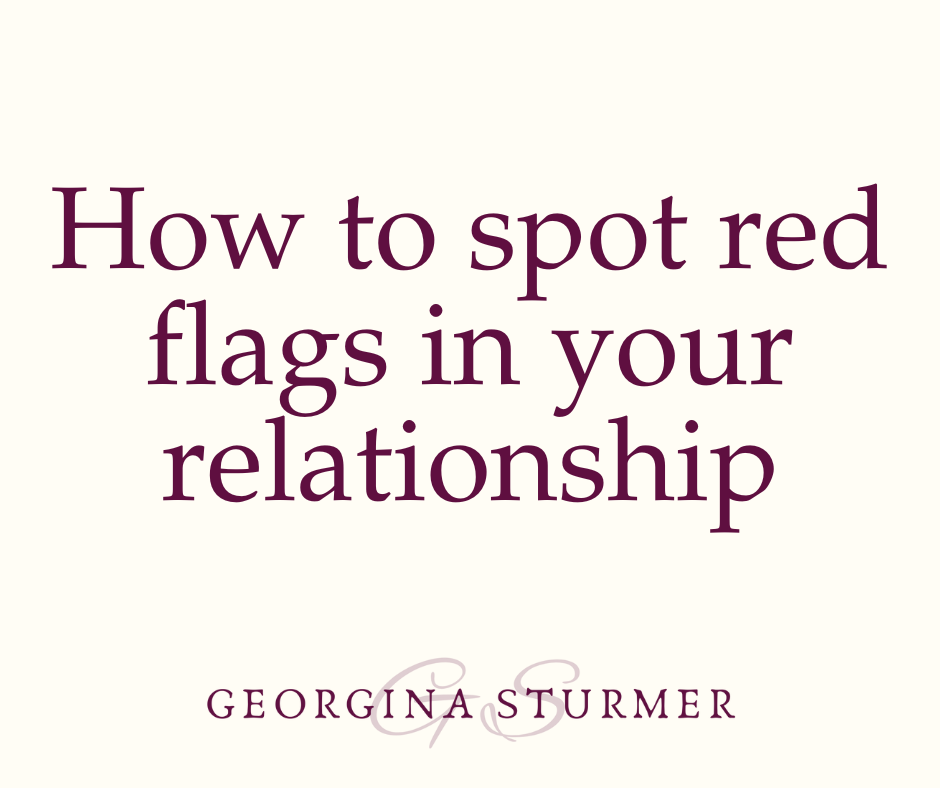Why can it be so hard to leave a relationship that has run its course?
- Georgina Sturmer

- Oct 25, 2025
- 3 min read
When we are in a relationship, we often thinking ahead to the future. Imagining ourselves as a couple, living our lives together. But when happens when a relationship has run its course? I spoke to The i Paper for an article all about the red flags that we might ignore - and why. The tricky thing about red flags is that they are not always obvious. Sometimes it's just the small, subtle things that make a difference. There's a twinge of a gut feeling that tells us something isn't right. But yet we don't always feel that we can act on it, and that can leave us feeling stuck or even trapped.
The 'sunk cost fallacy': why we hold on
This one sounds like it's straight out of an economics textbook. And in a way, it's not dissimilar. It's about investment. The time and energy that we invest in a relationship, building memories, creating shared friendships - and sometimes also the tangled web of financial commitment and joint purchases. When a relationship ends, we can't just wave a magic wand and take ourselves back in time to when it began. So it makes sense that these 'sunk costs' might encourage us to pause and hesitate, even if we know it’s time to walk away. We have already given so much of ourselves, and of our time, that we might simply ignore any red flags that we start to see.
The fears that make it hard to leave a relationship
In the therapy room, I often find myself asking, 'what's the fear that really lies underneath that?'. And when we think about leaving a relationship, it's natural to feel a complex set of fears. Fear of loneliness, fear of embarrassment, fear of judgement, fear of uncertainty. And these fears can be painful, and they can run counter to our craving for acceptance and companionship. Even if our relationship doesn't feel like it's in great shape, it might feel safer than the unknown. But it's important to remember that an unhealthy relationship won't always help with loneliness. In fact, we might already be feeling lonely, unappreciated, or misunderstood.
Why we minimise or rationalise red flags in a relationship
Sometimes, we ignore our gut feelings simply because we really want the relationship to succeed. There may also be external pressures - family, culture, finances - that convince us it would be easier to stay.
But there are internal pressures here too. If we struggle with our self-esteem, then we might not really believe that we deserve to be treated well. If this is the case, then it's easy to justify or ignore unhealthy dynamics. Some people even find a kind of 'comfort' in the familiarity of being treated badly, because it mirrors earlier experiences.
As an attachment specialist, I'm also really interested in the role of our attachment style when it comes to endings. I've written more about this in my blog post on endings. If our primary attachment style is avoidant, then endings often come naturally, and might feel like a relief. But if we are anxiously attached? Saying goodbye might feel unbearable
The good news is that developments in neuroscience show us that we can rewire these patterns. We can change the internal narrative that is stopping us from leaving a relationship that has run its course.
If you’re ready to explore this further, counselling can offer a safe space to untangle these feelings, build trust in yourself, and make decisions that feel right for you.
I offer online counselling for women across the UK. You can book a free 30-minute chat to find out more about how I can support you.





Comments